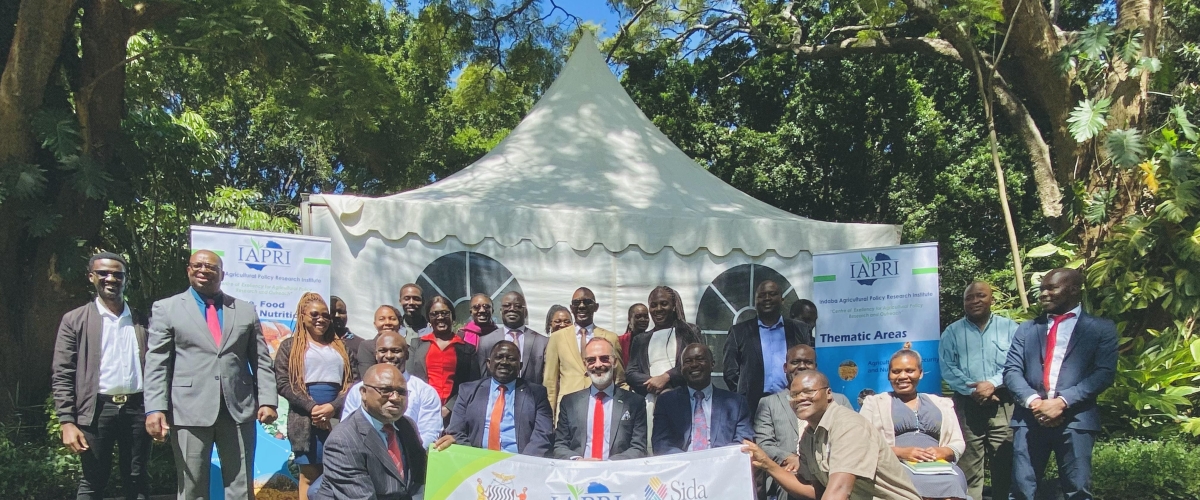
By Happy Mulolani
Lusaka-Zambia- RESEARCH shows that most smallholder farmers’ production capacities are low due to a lack of knowledge of the soil type. The production capacity of smallholder farmers averages less than two tonnes per hectare which is worrisome.
According to the Indaba Agricultural Policy Research Institute (IAPRI), “the low use of fertiliser in Zambia is due to low profitability for smallholder farmers.” This is amid the Government’s support to smallholder farmers through the Farmer Input Support Programme (FISP), which has enabled them to access and use fertiliser easily. But, the failure of smallholders to produce beyond two tons per hectare is attributed to “blanket” fertiliser recommendations and poor soil conditions, which have negatively impacted its effectiveness.
Given this, more effort has been made to address the soil status through conservation agriculture and innovative climate practices; sadly, no meaningful crop profitability or productivity has been attained.
Soils in Africa, of which Zambia is no exception, are inherently fragile. Unfortunately, the soils are also affected by other factors such as deforestation, erosion, vegetation removal and continuous cropping leading to significant decreases in soil health.
This backdrop enabled IAPRI to conceptualise an innovative programme called “Sustainable Food Systems Transformation: From Evidence to Action.” The programme seeks to contribute towards increased production and productivity of the agricultural sector in Zambia.
It also promotes area-specific fertiliser use and investments in soil management practices.
Speaking during the programme’s official launch in Lusaka recently, IAPRI Executive Director Chance Kabaghe explains that this campaign will enhance the “efficacy of fertiliser use, productivity and farm profitability.”
Mr Kabaghe states that “Our Future - Farmer Know Your Soil” is a two-year programme from 2023 to 2025. The Swedish Government supports it at a value cost of $800,000 (USD$ 2,000,000).
Swedish Ambassador Johan Hallenborg reiterated that the project would endeavour to contribute towards increased production and productivity of the agricultural sector in Zambia through enhanced Evidence-based policymaking through the generation of knowledge and evidence.
Mr Hallenborg emphasised that “the project is well aligned with Zambia’s Eight National Development Plan (8NDP), which focuses on the strategic development area of economic transformation and job creation.”
He explains that the 8NDP identifies agriculture as one of the economy’s key drivers.
“Agricultural sector growth has been lower than the annual national population growth rate of 2.8 per cent, yet it is the mainstay of a larger proportion of the population. Implicitly, the incomes of households dependent on this sector have been declining. The sector is characterised by low productivity, limited mechanisation and is largely rainfall dependent,” states the 8th National Development Plan (NDP).
Ideally, the implication is that Zambia needs to re-think ways and means of increasing production and productivity in the agriculture sector.
Apart from the Swedish Government supporting this campaign, it also focuses on supporting the agriculture sector to increase capacity to engage in sustainable trade and access to markets and value chains for small-scale farmers, entrepreneurs, and businesses.
The campaign will be conducted with the government, private sector, universities, Non-Governmental Organizations (NGOs) and cooperating partners who endeavour to support soil health, productivity and smallholder livelihoods. It will be piloted in two selected districts before scaling up interventions to other districts in the country.
IAPRI will closely work with the Ministry of Agriculture in selected districts and camps to target and train zonal ambassadors who will serve as resource persons at the community level.
It is envisioned that 2,700 smallholder farmers will directly benefit, while about 5,000 will benefit indirectly from the programme interventions.
The inception of this project is a glimmer of hope as it is expected to provide an opportunity for positive changes premised on evidence-based policy decisions in the agriculture sector, which will benefit farmers and various stakeholders in the country.
The author works as a Principal Agricultural Information Officer at the National Agricultural Information Services(NAIS)





